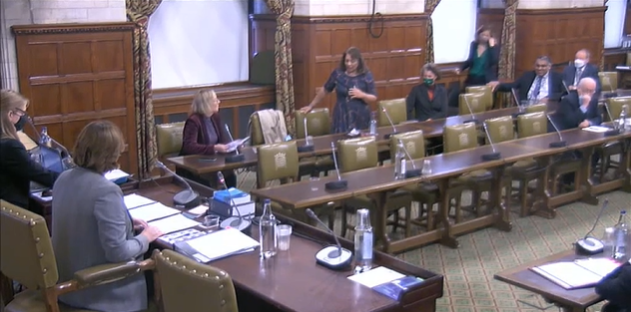- 20/10/2021
- Posted by: Valerie Vaz MP
- Category: News

A debate was sponsored by and moved by Gill Furniss MP (Sheffield, Brightside and Hillsborough) on Yemen, in Westminster Hall on Wednesday 20 October 2021. Gill is the Chair of Labour Friends of Yemen. In her opening remarks Gill said:
“It is estimated that 4 million people have been displaced. Rather than showing any signs of improvement, the crisis grows grimmer with every passing month. OCHA has also estimated that the conflict and humanitarian crisis have caused an estimated 233,000 deaths. Those are mostly due not to the conflict itself but to indirect causes, such as a lack of food and a deterioration in the health service infrastructure. That does not include the country’s covid-19 deaths, which are very likely to be higher than the official statistics. The war has created an environment that has allowed a multitude of disasters to take root. The country’s health infrastructure has been significantly damaged; half of its health facilities are no longer functioning, and those that are lack equipment as basic as masks and gloves. Many healthcare workers and teachers, who I will touch on further in a moment, have not taken a regular salary in years.”
I intervened to ask Gill : “I do not think that my hon. Friend knows how important this debate is to me. Having been born in Aden, and now seeing it war-torn in such a way, I am extremely concerned about what is going on there. I would like to return, at some stage, and I feel that, with the help of Martin Griffiths, we can possibly find a road to peace. Does my hon. Friend agree?”
Gill responded by saying:
“Very much so. I will come to that in more detail further on in my speech. As the chair of Labour Friends of Yemen and a long-time advocate for peace in the country, I am pleased to have secured this important debate. I will preface it by saying that it is impossible to detach the humanitarian crisis from the ongoing civil war in Yemen. Until there is a lasting peace in the country, it is impossible to see how the large-scale intervention required to redress the humanitarian crisis can be delivered.”
I later intervened to ask the Minister for the Middle East and North Africa, the Rt. Hon. James Cleverly,:
“I thank the Minister for his attention to this subject. Could I ask a double-headed question? I am sorry, but time is obviously limited. What accountability is there to ensure the money is actually going to where it should go, and when was the last time the Minister spoke to Martin Griffiths?”
The Minister said: “To answer the second question first, I speak with Martin quite regularly. I cannot remember the precise date on which I last spoke to him, but he and I have an excellent working relationship, and we speak quite regularly. With regard to accountability, we take the prevention of aid diversion incredibly seriously. We probably have one of the most robust donor frameworks, and we always ensure that where possible, we minimise aid diversion, because we know—particularly in areas of conflict—that diverted aid can go to reinforce the conflict, rather than to humanitarian aid. Work is ongoing in this area, as it is in all others.”

